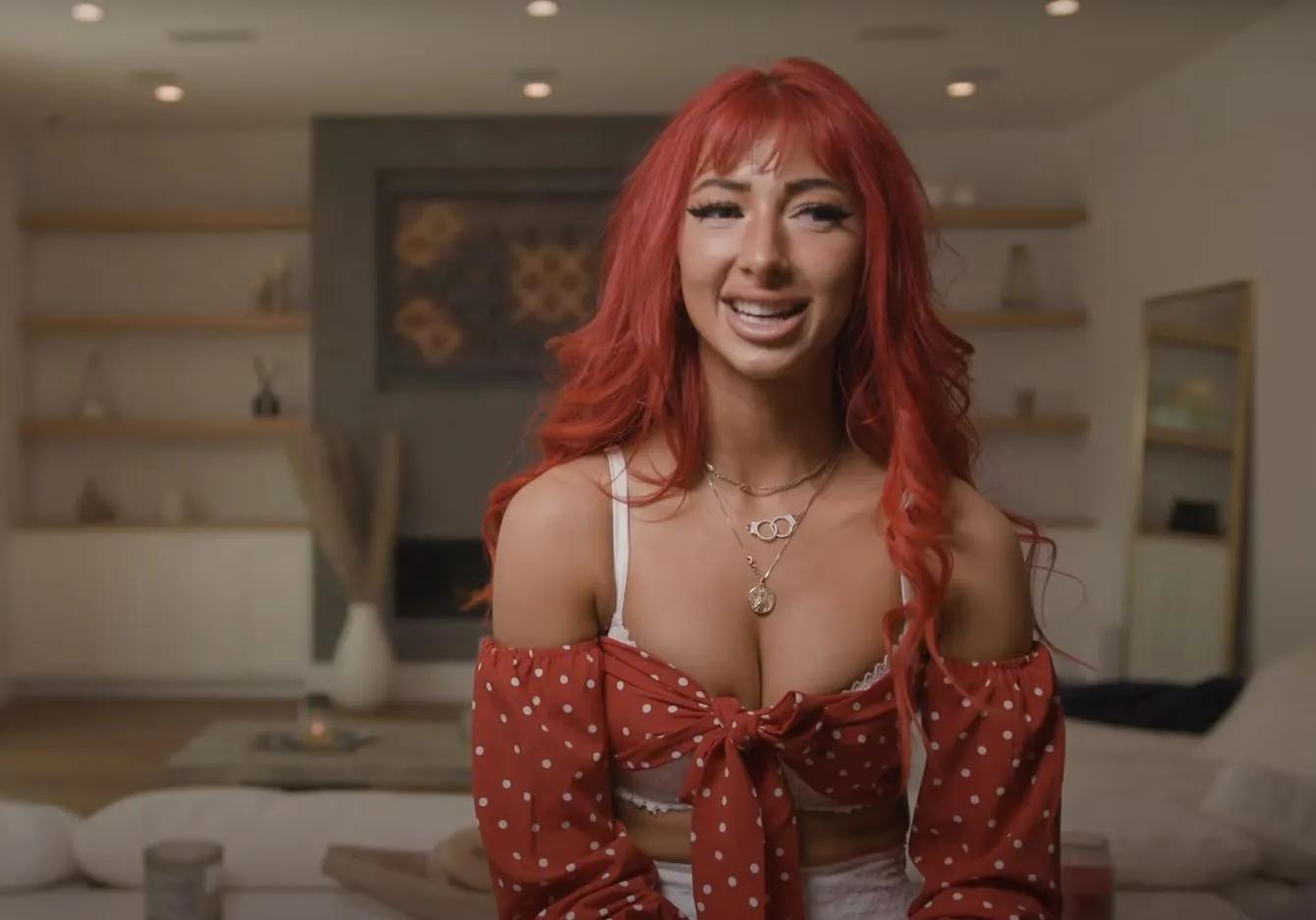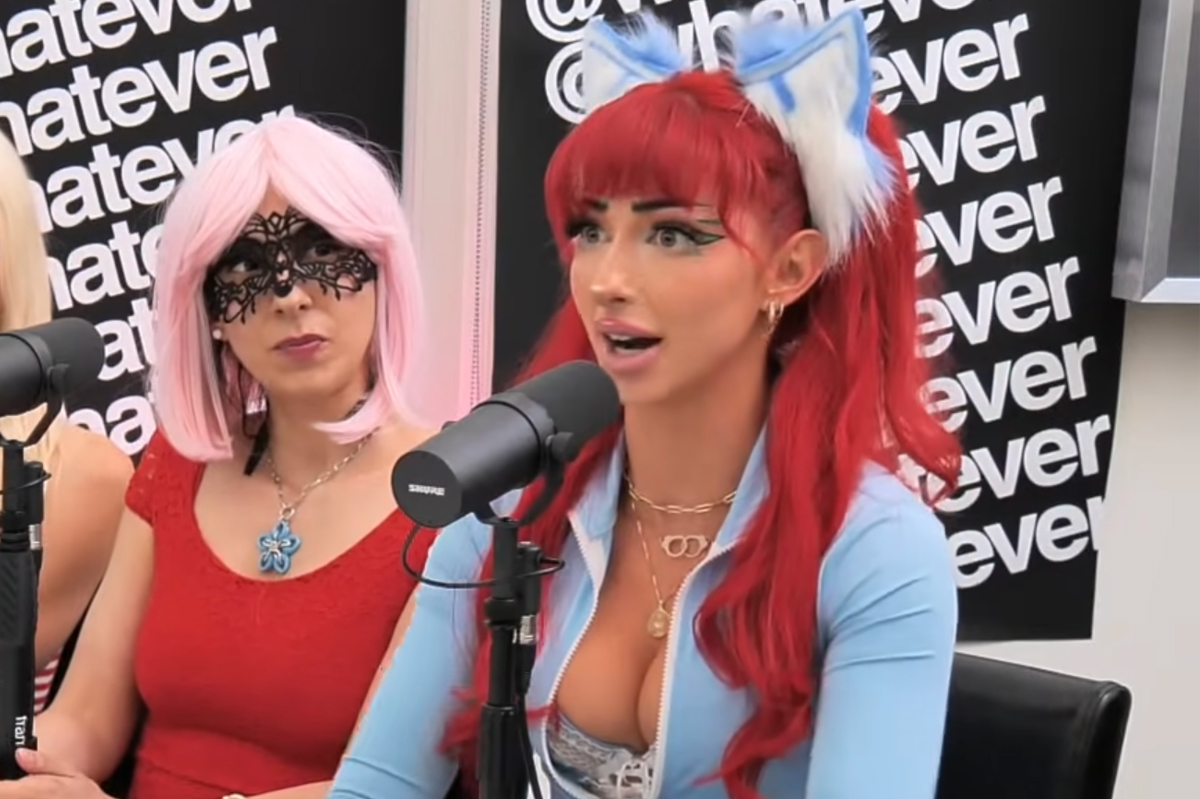Nalaray Leaks - What To Know About Online Information
In the bustling digital world, where content flows freely and communities gather online, the idea of information, perhaps something not meant for public eyes, making its way out can feel a bit unsettling. This kind of event, sometimes called "nalaray leaks," gets people talking, wondering about what it means for privacy and how we share things on the internet. It makes us think about the lines we draw between what's personal and what's out there for everyone to see.
When we look at places like the `femabs` community, which once had a big following on Tumblr and now thrives on Reddit, or even the `grambaddies` and `bootyarch` groups, you know, where folks share pictures and videos, it's clear that a lot of personal content is put out there. The thought of "nalaray leaks" in these spaces, where people are showing parts of their lives, can bring up serious questions about who owns that content and how it should be handled. It makes you wonder, too, about the trust people place in these platforms.
Then there's the whole discussion around personal duty, as one belief suggests, that staying accountable is a personal calling because free will is a gift. This idea, in some respects, speaks to how individuals behave online, whether they are sharing things or just looking at what others put up. It brings up the notion of responsibility when it comes to any "nalaray leaks" that might surface, asking us to consider the impact of our actions in this very interconnected digital space.
- Which Taylor Swift Song Is About Travis Kelce
- Friday The 13th House
- Allison Holker Dwts Partners
- Alexis Stewart Wedding Suit
- 90 Day Fiance Who Died
Table of Contents
- Understanding Nalaray Leaks in Online Spaces
- What Are the Real Implications of Nalaray Leaks for Communities?
- The Role of Personal Accountability When Nalaray Leaks Happen
- How Do Platforms Like YouTube Handle Sensitive Content Related to Nalaray Leaks?
- Content Sharing and the Potential for Nalaray Leaks
- Who Is Responsible When Nalaray Leaks Occur?
- Keeping Your Digital Life Secure From Nalaray Leaks
- The Broader Conversation Around Nalaray Leaks
Understanding Nalaray Leaks in Online Spaces
When we talk about "nalaray leaks," we are, in a way, pointing to moments where information that was meant to be kept private or shared only with a select group somehow becomes public. This could be anything from personal pictures or messages to details about a person's life that they never intended for the wider internet to see. It’s a pretty big deal because, as we've seen with communities like the `femabs` subreddit, where people share quite a bit, the line between private and public can get blurry. These communities, often built on shared interests and a sense of belonging, rely on a certain level of trust among their members. When that trust is broken by something like "nalaray leaks," it can really shake things up for everyone involved.
Consider the sheer volume of content that flows through platforms where users are always uploading new things. From the `grambaddies` community, with its hundreds of thousands of members, to the `onlyfanspromotions` group, which has over a million people looking for and sharing content, there is just so much information moving around. A "nalaray leaks" event in such a setting means that something meant for a smaller audience, or perhaps even something that was never supposed to be out there at all, finds a much wider audience. This can lead to all sorts of issues, like people feeling exposed or having their personal lives put on display without their permission. It makes you think, too, about the very real human impact behind these digital happenings.
The phrase "get anyone mega 4 only 2 dallors hurry before it expires😈💯" from our source text, for instance, seems to point to a kind of underground economy around digital content. This suggests that some information, perhaps what we might call "nalaray leaks," is not just accidentally shared but might be intentionally spread or even sold. This adds a whole other layer to the conversation, bringing up questions about exploitation and the value placed on personal data in certain corners of the internet. It’s a reminder that not all information sharing is done with good intentions, and that some people are always looking to profit from what others consider private.
- Reign And Justin Bieber
- Go Pure Tighten And Lift Neck Cream Reviews
- Aaron Rodgers Is He Married
- Becca Kufrin Engagement Ring
- Is Kelli Giddish Married
What Are the Real Implications of Nalaray Leaks for Communities?
When something like "nalaray leaks" happens, the effects can spread through online communities pretty quickly, much like ripples in a pond. For a group such as `themisogenius llc`, where people are employed and there's a structure, or even smaller communities like `themisogenius` subreddit, the appearance of sensitive information could cause a lot of disruption. It can break down the sense of safety and openness that people feel when they participate in these spaces. Members might start to feel less comfortable sharing their thoughts or content, worried that their contributions could, in some way, become part of a future "nalaray leaks" situation.
The trust that holds these digital gatherings together is very fragile, actually. If people start to believe that their personal details or the content they share could be exposed without their permission, they might just pull back. This could lead to a decline in participation, making the community less vibrant and less active. Imagine a place like `the real housewives of atlanta` fandom, where people discuss public figures and their lives; if private details about the fans themselves were to surface due to "nalaray leaks," it could change the entire dynamic of how they interact and what they feel comfortable talking about. It’s a question of safety and privacy, and how those feelings affect the way people connect online.
Moreover, the fallout from "nalaray leaks" isn't just about people feeling uncomfortable. It can have real-world consequences, too. For individuals whose personal information is involved, there could be emotional distress, damage to their reputation, or even security risks. For the communities themselves, there might be a need to rethink their rules, their moderation practices, and how they protect their members. It's almost like a wake-up call, prompting everyone to think more carefully about the kind of content they share and the platforms they use. This sort of event really does put a spotlight on the importance of digital well-being.
The Role of Personal Accountability When Nalaray Leaks Happen
The idea of personal duty, as one perspective suggests, means that it's up to each individual to be responsible for their own actions because, you know, we are given free will. This thought becomes especially important when we consider something like "nalaray leaks." It makes us ask: what is our part in all of this? If someone comes across information that might be part of a "nalaray leaks" situation, do they have a duty to not spread it further? Or, if someone shares content online, what is their responsibility to ensure it's protected and not misused?
For content creators, especially those active in communities like `onlyfanspromotions`, where sharing personal media is the whole point, the question of accountability is pretty big. They put their work out there, often with the expectation that it will be seen by a specific audience under certain conditions. If "nalaray leaks" involve their content, it raises questions about how much control they have once something is online, and what steps they took to protect it in the first place. It’s a constant balancing act between sharing and securing, and it’s a tough one to get right every time.
And it's not just about the creators, either. People who consume content, those who are members of communities like `bootyarch` or `grambaddies`, also play a part. If they see information that looks like "nalaray leaks," their choices matter. Do they share it, ignore it, or report it? Each decision has consequences, and it contributes to the overall digital environment. So, it's about everyone doing their bit to make the internet a more respectful and safer place for information exchange, you know, being mindful of what they click on and what they pass along.
How Do Platforms Like YouTube Handle Sensitive Content Related to Nalaray Leaks?
When it comes to platforms that host a lot of user-generated content, like YouTube, they have a big job on their hands trying to manage what gets put up and what doesn't. The official YouTube help center, for instance, offers tips and tutorials on using the service and answers to common questions. This suggests that they have rules and guidelines in place for content. If "nalaray leaks" were to appear on their site, perhaps as videos or discussions, they would need to act quickly to address it.
YouTube, like many big platforms, has systems for reporting content that might violate their terms of service. This means that if someone were to upload something that falls under the category of "nalaray leaks"—say, private information or unauthorized content—users could flag it. The platform would then review it to see if it breaks their rules, which usually include policies against harassment, privacy violations, and unauthorized sharing of personal data. It's a constant effort to keep the platform safe for everyone, you know, from those watching `the real housewives of atlanta` clips to people learning how to sign into YouTube on their TV.
They also offer tools for creators to manage their own content, like options to edit videos, create shorts, and manage their channel settings. This gives creators some control over what they put out there. However, if "nalaray leaks" happen, it often means that content has gone beyond these controls. This is where the platform's ability to respond to reports, remove inappropriate material, and even issue warnings or bans to accounts that violate their policies becomes very important. They are always working to keep up with the vast amount of content, and it’s a challenging task for sure.
Content Sharing and the Potential for Nalaray Leaks
The way we share content today is so different from how it used to be, isn't it? With just a few taps, you can upload videos, pictures, and thoughts for the whole world to see. Communities like `femabs` and `grambaddies` thrive on this easy sharing, allowing people to connect over shared interests. But this ease of sharing also brings with it the potential for things to go wrong, for information, perhaps what we call "nalaray leaks," to surface in unexpected ways. It's a double-edged sword, really, this freedom to put ourselves out there.
Think about the sheer volume of material being posted every single day. People are always creating and sharing, whether it's for fun, for work, or to build a following. For instance, the instruction to "post should include the ig username between ( & )" for `grambaddies` points to how content is often linked directly back to an individual's public identity. This makes any "nalaray leaks" involving such content even more personal, as it's directly tied to someone's name and online presence. It creates a very clear path from the content back to the person, which can be quite unsettling.
The digital tools we use, like the YouTube app for smartphones or smart TVs, are designed to make viewing and sharing content as smooth as possible. You can sign in with a Google account to use features like liking videos, subscribing to channels, or keeping a watch history. This interconnectedness, while convenient, also means that our digital footprint is always growing. Any "nalaray leaks" could, in some respects, be a piece of that footprint that was never meant to be highlighted, making the situation feel more exposed and, you know, a bit vulnerable for the person involved.
Who Is Responsible When Nalaray Leaks Occur?
This question of who is responsible when "nalaray leaks" happen is a pretty complex one, actually. Is it the person whose information was leaked? Is it the person who shared it without permission? Or is it the platform where it appeared? There isn't always a simple answer, and it often depends on the specific situation and how the information came out. For instance, if someone actively sought out and paid for "mega" content, as suggested by "get anyone mega 4 only 2 dallors," their actions contribute to the demand for such material.
From one perspective, the individual who originally created or owned the content has a certain level of responsibility to protect it. This means being careful about what they share, with whom, and on what platforms. Yet, even with the best precautions, things can still go wrong. Then there's the person who, perhaps, found the "nalaray leaks" and decided to spread them. Their choice to disseminate private information carries a lot of weight, and their actions can cause significant harm to others. It’s a matter of digital ethics, and, you know, doing the right thing.
Platforms, too, have a part to play. While they can't control every single piece of content that gets uploaded, they do have a duty to provide tools for reporting misuse and to act when their rules are broken. The YouTube help center, for example, exists to guide users and address issues. If "nalaray leaks" are reported, the platform is expected to review and remove them if they violate guidelines. So, in a way, responsibility is shared across different parties, making it a collective effort to manage information in online spaces.
Keeping Your Digital Life Secure From Nalaray Leaks
Protecting your digital life from things like "nalaray leaks" is something we all need to think about a bit more these days. It starts with being mindful of what you put online. Every picture, every comment, every piece of personal information you share contributes to your digital footprint. Once something is out there, it can be very difficult, if not impossible, to get it back completely. So, a good first step is to just pause and think before you post.
Another important part is to understand the privacy settings on the platforms you use. Whether it's Reddit communities like `femabs` or video platforms like YouTube, they all have options that let you control who sees your content. Taking the time to adjust these settings can make a big difference in preventing unwanted exposure. For instance, knowing how to sign into YouTube on your TV securely, or understanding how to manage your Google account, which lets you use many YouTube features, gives you more control over your viewing experience and, you know, your data.
Finally, being aware of suspicious links or offers, like the one about getting "mega 4 only 2 dallors," is also important. These can sometimes be traps designed to get you to give up personal information or access to your accounts. Staying informed about common online threats and practicing good digital habits can go a long way in keeping your personal information safe from any potential "nalaray leaks." It’s about being smart and cautious in a world where information moves very fast.
The Broader Conversation Around Nalaray Leaks
The talk around "nalaray leaks" isn't just about individual instances; it's part of a much bigger conversation about privacy, ethics, and the way information flows in our modern world. It touches upon how content is created, shared, and consumed across countless platforms, from specialized communities like `bootyarch` to general ones like YouTube. This discussion forces us to consider the impact of technology on our personal lives and on society as a whole. It’s a pretty significant topic, when you think about it.
This wider conversation also includes how platforms are adapting to new challenges, like the introduction of generative AI content, as mentioned in the YouTube help center's announcement about new disclosures and classifications. As technology evolves, so too do the ways information can be created, manipulated, and shared, which means the potential for "nalaray leaks" could change as well. It's a constant race to keep up with what's new and to make sure that people's rights and privacy are protected.
Ultimately, thinking about "nalaray leaks" means reflecting on our shared responsibility in the digital space. It's about recognizing that while technology offers incredible ways to connect and share, it also comes with certain risks. By being more aware, by practicing personal accountability, and by supporting platforms that prioritize user safety, we can all contribute to creating a more secure and respectful online environment. It's a continuous effort, and, you know, something we all play a part in.
- Alexis Ren And Alan
- Orlando Bloom With Dog
- Olivia Milton John
- Friday The 13th House
- Best Vacuum Under 200 Dollars

Quién es Nala Ray, exreligiosa que ahora triunfa en OnlyFans

Who Is Nala Ray? Age, Bio, Career, Net Worth Of The OnlyFans Star

Is Nala Ray too far gone to be saved? - The Spectator World